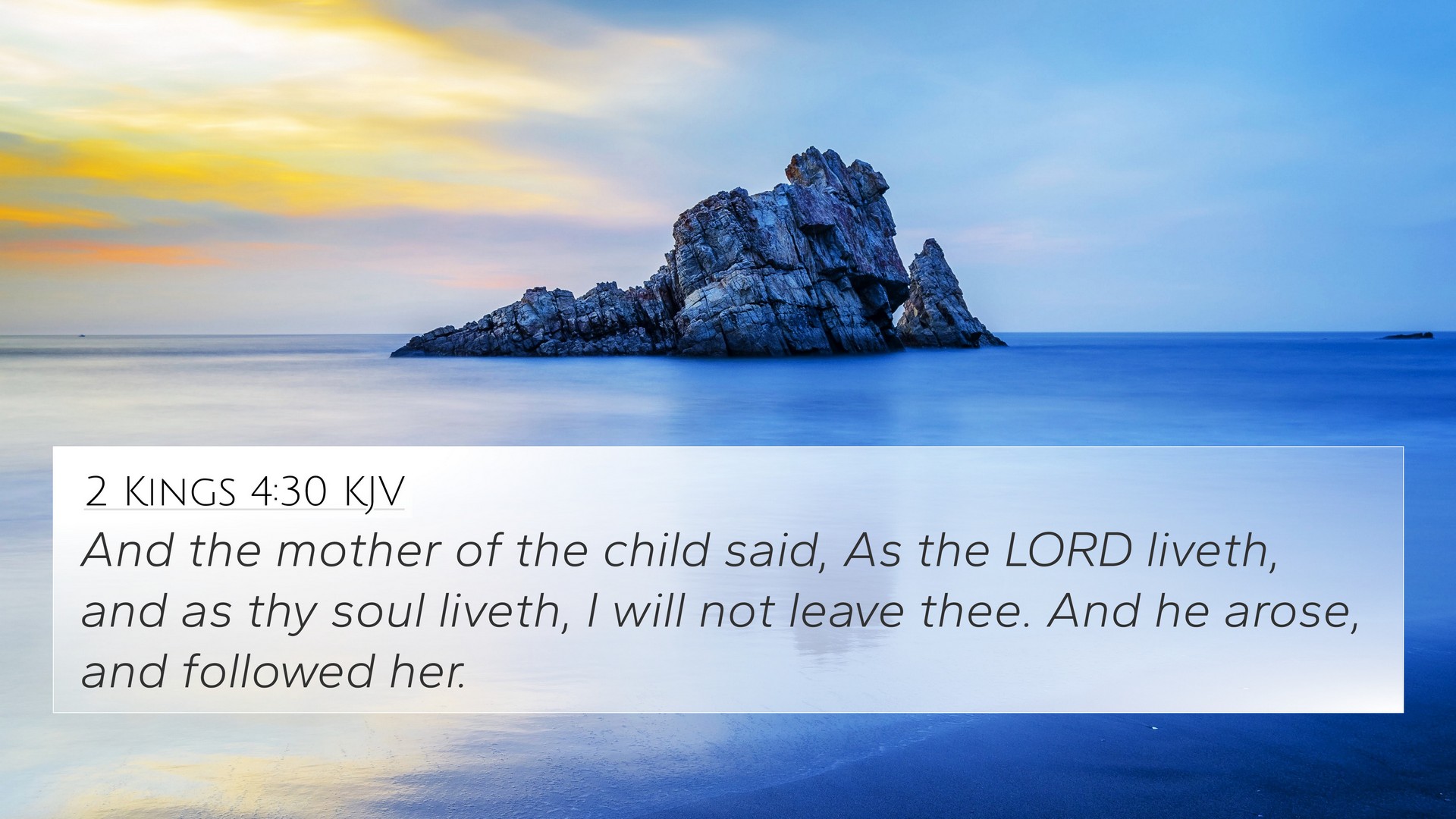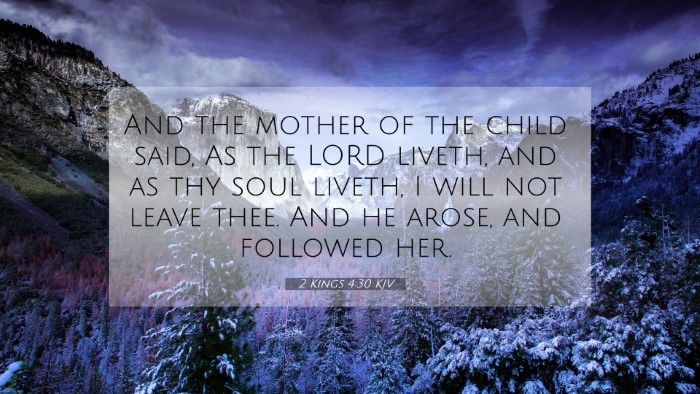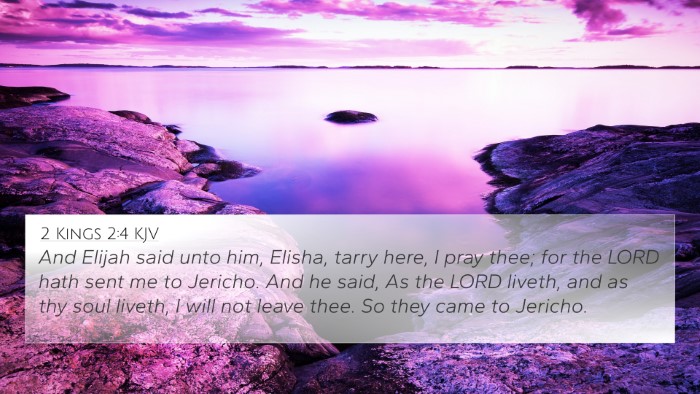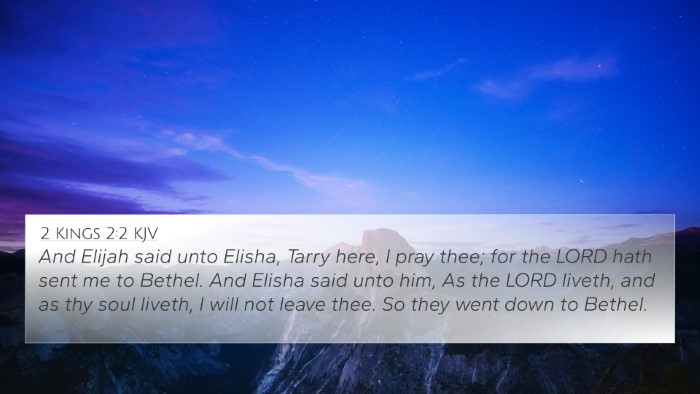Understanding 2 Kings 4:30
Verse: "And the mother of the child said, As the Lord liveth, and as thy soul liveth, I will not leave thee. And he arose, and followed her."
Contextual Background
The verse appears within the story of Elisha and the Shunammite woman, who exemplifies unwavering faith and devotion. This narrative underscores the power of prophetic ministry and the miraculous acts performed through God’s prophets.
Meaning and Interpretation
The declaration, "As the Lord liveth," emphasizes the sincerity and intensity of the woman’s faith. She was desperate because her child had died, and in her plea, she expressed absolute determination to seek the prophet Elisha for help.
This verse illustrates several key themes:
- Faithfulness: The mother’s tenacity reflects a deep faith in God’s power to reverse death and heal.
- Divine Intervention: Her refusal to leave Elisha allows for the opportunity of divine intervention through the prophet.
- The Role of Prophets: Elisha functions as an intermediary between God and the people, showcasing how God uses human agents to fulfill his purposes.
Thematic Connections with Other Bible Verses
This verse connects to several other passages that highlight themes of faith, resurrection, and divine support. Below are some significant cross-references:
- 1 Kings 17:21-22: Elijah raises the widow's son, demonstrating God’s power over life and death.
- Matthew 9:18-26: Jesus raises a girl from the dead, showcasing the authority he has over life.
- John 11:43-44: The resurrection of Lazarus illustrates the belief in Jesus' ability to bring back the dead.
- Hebrews 11:1: This verse defines faith as the assurance of things hoped for, resonating with the mother's unwavering faith.
- Luke 8:49-56: Another account of Jesus raising a dead girl, highlighting God’s consistent intervention in dire situations.
- Psalm 30:2: A plea for help and acknowledgment of God's deliverance connects emotionally with the Shunammite woman's plight.
- Revelation 21:4: Assurance of no more death is a promise that resonates with the hope the mother clings to.
Cross-Referencing Biblical Texts
To fully appreciate 2 Kings 4:30, it is beneficial to understand how it relates to broader themes in the Bible. The act of seeking help in dire situations and the ensuing miracles serve as a powerful narrative tool that connects various scripture passages.
Tools for Bible cross-referencing can be instrumental in uncovering these thematic links:
- Bible Concordance: Helps in locating specific verses and concepts across the text.
- Cross-Reference Bible Study Guides: Offer insights into related scriptural themes.
- Bible Reference Resources: Facilitate deeper understanding through extensive connections between verses.
- Bible Chain References: Enable readers to trace thematic links seamlessly throughout the Bible.
Practical Application for Believers
This verse encourages believers to maintain steadfast faith in God’s promises, especially during difficult circumstances. The unwavering confidence of the Shunammite woman serves as an example of true trust in divine sovereignty.
When studying such scriptures, one might ask:
- What verses are related to this sign of faith?
- How do other scriptures illuminate the themes presented in this narrative?
Concluding Thoughts
2 Kings 4:30 invites readers to engage in comparative Bible verse analysis and to explore inter-Biblical dialogue between both the Old and New Testaments. By recognizing the parallels and connections between these scriptural accounts, we deepen our understanding of God's nature and His promises of hope and restoration.






